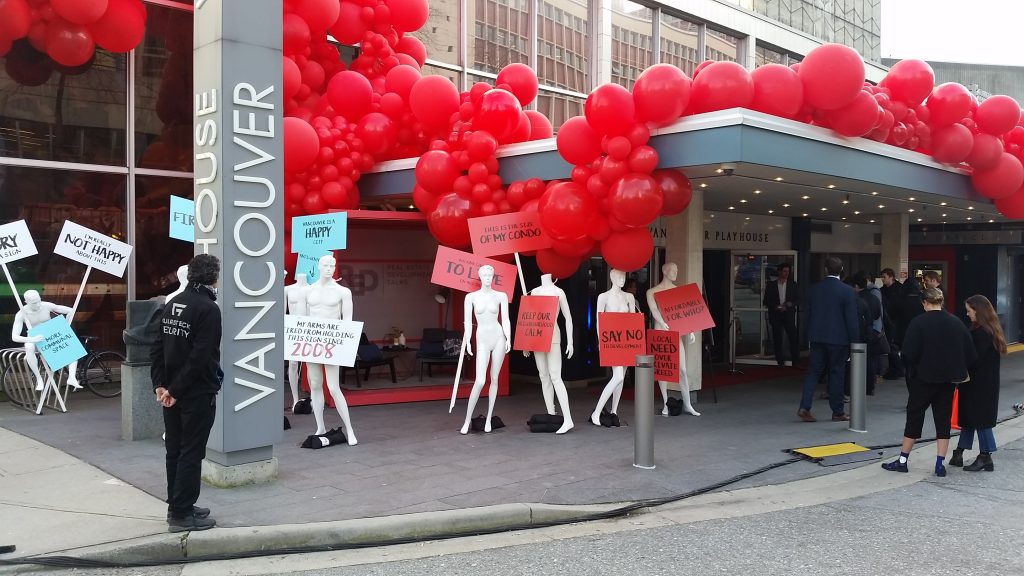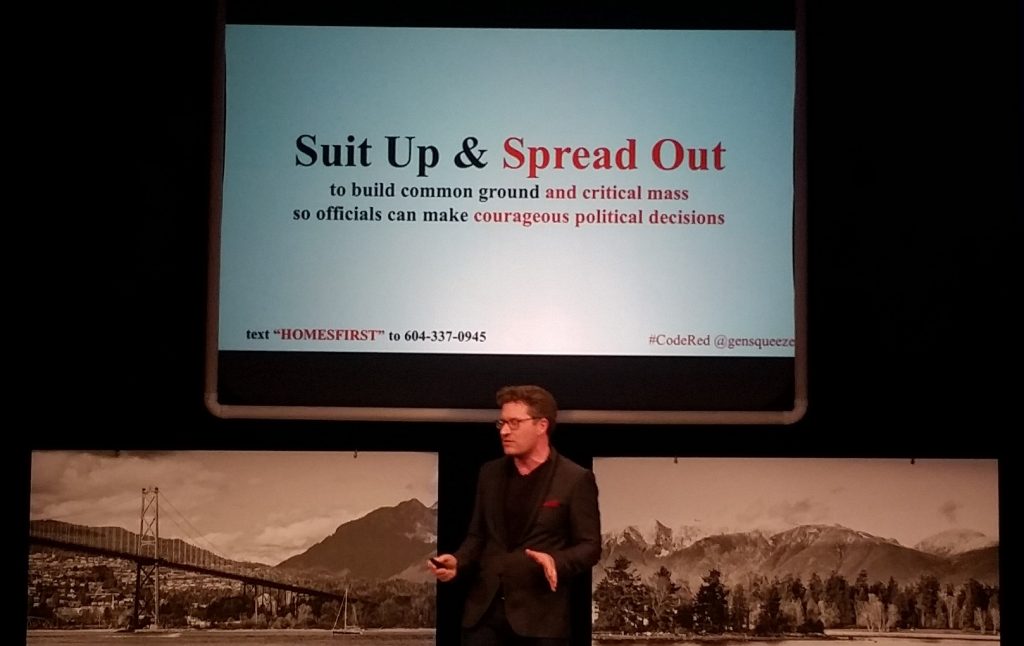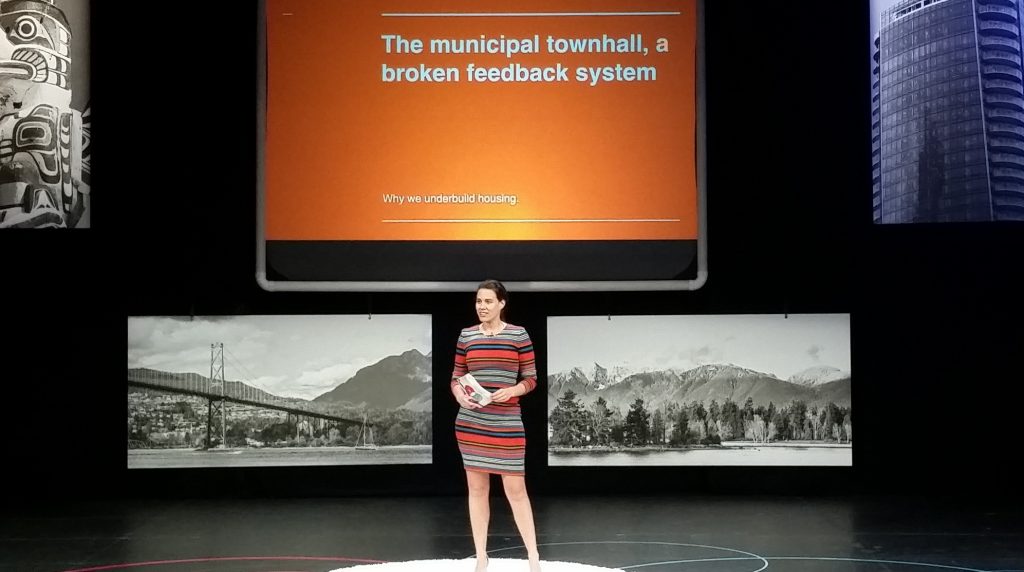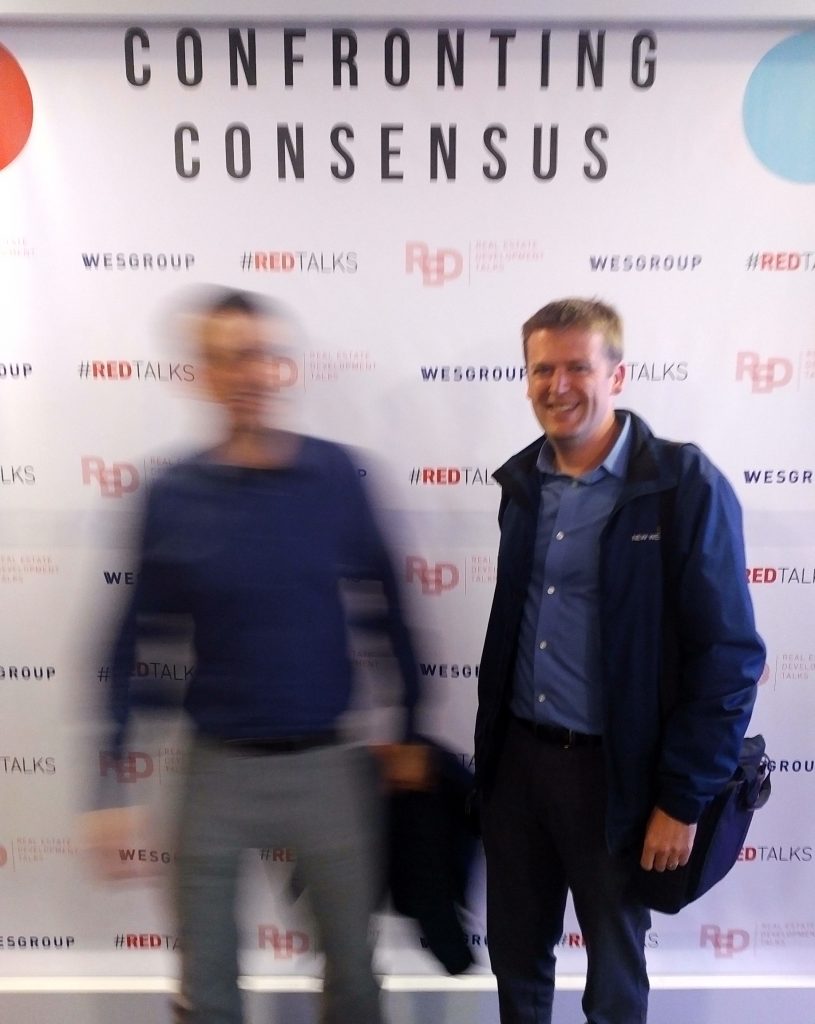A few of us from New Westminster attended the RED Talks event in Vancouver last week, and I was pleasantly surprised by the content of the evening. Red Talks are a local rip riff off of the Ted Talks format, put on by the local development community – RED stands for Real Estate Development. However, it wasn’t developers touting their projects or contributions, it was a conversation about building better cities.

The organizers were cheeky enough to create a bit of a faux-protest motif for the event, whose theme was “Confronting Consensus”, but the talks actually brought a nuanced conversation about development, housing, and the role of consultation as a discussion between the public and decision-makers. There were probably an equal number of jibes at the Real Estate industry as there was at elected officials, and everyone seemed to acknowledge that the current housing situation in Greater Vancouver isn’t sustainable, or even desirable in the shorter term.
I wished that the folks from Yes in New West were there to be inspired by two of the speakers in particular.

Paul Kershaw has his Generation Squeeze pitch down solidly, and has criticism for pretty much everyone involved in creating a housing market where an entire generation is feeling completely squeezed out. His economic stats were pretty compelling, demonstrating how today’s young professionals are in an entirely different economic universe than their parents, with home ownership being well out of reach for even the most responsible savers.
His call to action is pretty simple: Generation Squeeze has got to get organized, then get active, not just to demand better, but to give decision makers (elected officials, for the most part) the information and vocal support they need to make the sometimes difficult policy decisions that are required to shift our land use.
A perfect example of this call to action was personified in Sonja Trauss of BARF (Bay Area Renters Federation), who is taking a pretty active approach in San Francisco:
San Francisco has, arguably, a bigger housing affordability issue than Vancouver, and faces serious challenges increasing housing stock because of resident push-back against any form of density. The simple truth Trauss realized is that traditional public consultation, when it comes to housing development, completely misses the target. People who will live in new housing never go to the public hearings to support that housing, so the only voice heard at public meetings is that of the people who already have housing near the site of the development. In what other instance do we ask the only cohort who do not want a product to comment on the form of the product?
Her organization tries to break this cycle in San Francisco by organizing active feedback by renters and underhoused people to pretty much every development project in the Bay Area, arguing that rapid increases in regional housing supply is much more important than the (inevitable) parochial concerns.
The talks were rounded out by Nick Buettner of the Blue Zones Project and Steven Levitt, the Freakonomics guy.
The Blue Zones idea is familiar to most urban planning geeks – there are places in the world where combinations of built form and behavior results in longer lifespans and higher quality of life. It is intriguing to learn what lifestyle commonalities may be behind the gerontology anomalies of Okinawa, Sardinia, and Loma Linda, California.
Finally, I may have been the last person on earth to have read Freakonomics, which I did over the Christmas break while on vacation. I found Leavitt in person very much like I found the book: Interesting, but slightly frustrating. Leavitt has a bewildering combination of pattern-seeking insight and intellectual laziness. He finds new ways to pull insight out of noisy data, but then seems to lose interest in the complex interactions that may underlie these patterns – he seems to rush from correlation to causation with reckless abandon, which rubs us in the non-dismal sciences the wrong way. Worse, he response when being called out on this tenancy is essentially to say “Meh”.
All in all, an interesting evening that had me buzzing with OCP energy:

I’d say that this summary is accurate. Levitt’s presentation seemed like something he had done many times, with a bit of ‘by the way, more housing is good and everyone here is right’ appended to the end to keep to the topic.